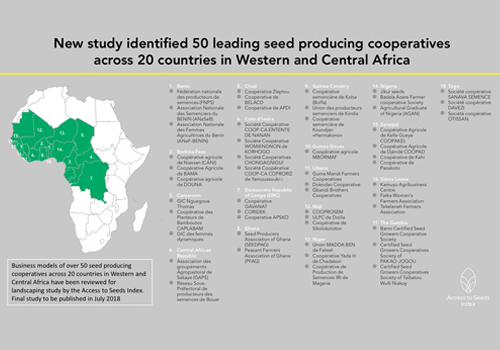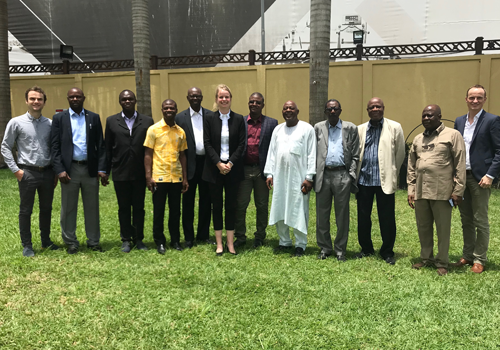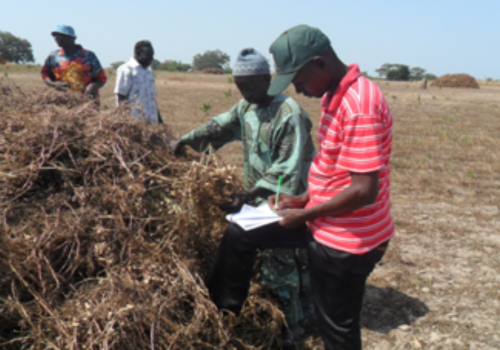Across nearly all countries in Western and Central Africa, seed producing farmer cooperatives play a key role in improving access to quality seeds for smallholder farmers. A new study by the Access to Seeds Index, made possible with the support of AgriCord and Agence Française de Développement (AFD), reviewed the activities of over 50 seed producing cooperatives in 20 countries in the region. A first draft of the study was discussed by regional experts in Accra on 17 April 2018. According to one of the experts, the study highlights ‘the indigenous power of the seed sector in Western and Central Africa.’
At a preceding meeting in Abidjan in October 2017, the seed experts that form a regional advisory committee of the Access to Seeds Index, underlined the need to see the seed sector in Western and Central Africa as a continuum of seed companies and seed producing cooperatives. ‘If we want to improve access to quality seeds for small farmers we need to unlock the potential that comes with this diversity of actors,’ one expert stated on that occasion. ‘Farmer cooperatives are often referred to as part of the informal seed sector. But that ignores the fact that many of these cooperatives or farmer networks are formally recognized by the authorities and produce good quality seeds.’
The new study confirmed this view. The main findings discussed at the meeting were:
1) Revival: the study identifies a ‘revival’ of the cooperative model. Through either government regulation, interventions by donors, or farmers realizing themselves that they stand stronger when united, in many countries new cooperatives have been formed, or existing cooperatives revitalized in the past few decades.
2) Formal: many of the seed producing cooperatives are formally recognized and should be regarded as part of the formal seed sector. Their role is described in regional and national regulations and they have structured governance models. It is not an alternative for seed companies but a distinct segment in the formal sector with added value.
3) Certified seeds of improved varieties: in general, cooperatives produce varieties provided by national or international research institutes and therefore they play a role in introducing and making available improved varieties. The primary focus is on OPV seeds, but some coops have the capacity to produce hybrids, or even early generation seeds. They do not do their own breeding but are often involved in participatory variety selection. Some do produce local varieties or multiply landraces but generally for their own use.
4) Complementary portfolio: the portfolio of seed producing cooperatives includes seeds for crops generally not found in the portfolio of seed companies, such as legumes but also propagation material for crops such as manioc and plantain, as well as local vegetables.
5) Extended reach through partnerships: the reach of cooperatives is generally very local; many lack the capacity to attain a national reach on their own. Through partnerships with public entities, seed companies or NGO’s, or through cooperation within umbrella organizations, cooperatives in some countries do extend their reach beyond their own region.
Feedback from the experts will be used to finalize the study which is scheduled for publication in July 2018.
The experts discussed the development of a benchmark or dashboards for seed producing cooperatives to help lift the level of professionality across the region. ‘Some cooperatives have developed good practices that can be an inspiration for others. But the first priority should be that cooperatives develop a strong business model that creates financial autonomy and sustainability to really unlock their potential’, one expert concluded.
Final report available in July 2018.






